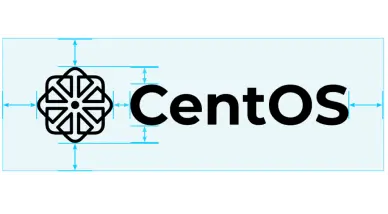CentOS Stream and the future of CentOS
Monday July 12, 2021

CentOS has been one of the most prolific Linux server distributions available. The stability, simplicity, and low overhead have made it the top choice to run production server applications – especially hosting panels such as cPanel. The open source nature of CentOS, as well as the backing from the Red Hat Enterprise Linux (RHEL) Project, uniquely positioned CentOS as the only widely available and highly supported Red Hat based distribution to exist for Linux server administrators. The proliferation of web panels such as cPanel helped to firmly cement CentOS as an important player for production server applications. That is until CentOS Stream was announced.
What is CentOS Stream and how does it affect me?
CentOS Stream is the RHEL Project’s and CentOS Project’s new rolling distribution to succeed CentOS 8. By deciding to go with a rolling distribution model, CentOS developers can release new features into the operating system at a rapid pace. Unfortunately, this also means that CentOS Stream users have now become beta testers.
Features are introduced so quickly that there is often not much time to patch or even discover many bugs. This results in an unstable and buggy distribution — the opposite of what companies are looking for to support their server applications. The original intent behind CentOS was to be a community-driven enterprise distribution. Enterprise distributions are designed to be extremely reliable as well as stable, in stark contrast to Stream’s rolling distribution model.
Highly complex panels such as cPanel cannot develop fast enough to work around bugs that are introduced and for every bug that is quashed, another one is likely to take its place. For that reason, cPanel has refused to support CentOS Stream.
Another issue relates to a truncated support schedule for CentOS 8. With CentOS Stream replacing CentOS 8, the latter is being phased out of the CentOS Project’s development cycle. CentOS 8 users, who expected an EOL of 2029, are now contending with an EOL of 2021. This presents a significant challenge to systems administrators and their clients, which consequently elicited a highly negative response from the enterprise community. Accusations were drawn that the RHEL project is attempting to force administrators to pay for RHEL 8 licenses by terminating CentOS 8 support. This is aggravated by the fact that RHEL is now offering 16 free licenses per company in order to help push RHEL 8 — leading many to believe this is a cash grab caused by IBM’s acquisition of the RHEL project back in 2019. This was predicted by many, as IBM has a track record of imposing highly convoluted and extremely expensive licensing plans on many of their products.
What are my options?
Thankfully, many projects have stepped up to provide the open source community with an enterprise operating system that is 1:1 bug compatible with CentOS 8. The two biggest contenders are AlmaLinux, developed by CloudLinux, and RockyLinux, developed by the Rocky Enterprise Software Foundation. Both serve to continue the original purpose of CentOS, filling the gap CentOS will leave for a community enterprise distribution. cPanel has announced support for both AlmaLinux and RockyLinux, allowing users to select either option to run cPanel on RHEL 8. GigeNET is a proud Cloudlinux and cPanel partner and our techs have years of experience working with their products. Clients with support plans can receive assistance from our support team migrating their cPanel instances to either AlmaLinux or RockyLinux. We are available 24/7 to assist you with any questions you may have about cPanel and RHEL 8 support, as well as any other issues you may be facing.